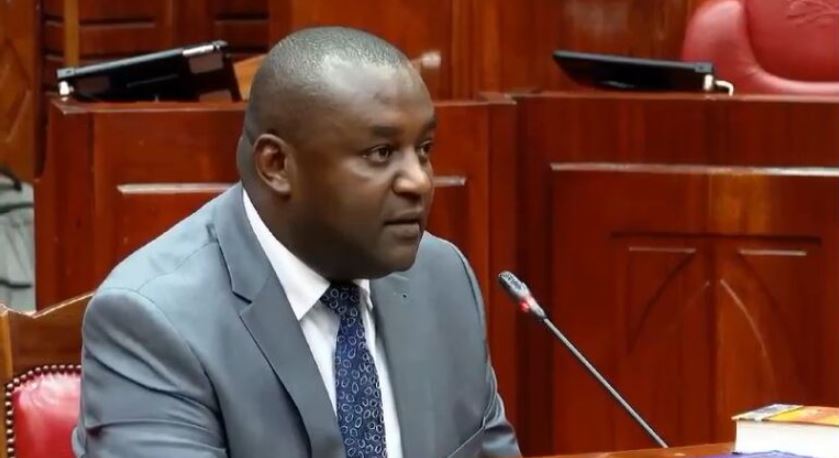“Now that I have preached about a dozen sermons I find I am repeating myself,” a young minister wrote despairingly in his diary in 1915. He was barely out of school and only a few months into his first call, at Bethel Evangelical Church in Detroit. “The few ideas that I had worked into sermons at the seminary have all been used, and now what?” It would be fourteen years before anyone else read those words, published under the title “Leaves from the Notebook of a Tamed Cynic.” It would take even longer for their author, Reinhold Niebuhr, to become one of the best-known theologians in the country, famous for works such as “The Irony of American History” and “The Nature and Destiny of Man.”
Niebuhr was twenty-three when he was assigned to Bethel, and so timid that he often walked past the houses of parishioners a few times before he worked up enough courage to knock. “There is something ludicrous about a callow young fool like myself standing up to preach a sermon to these good folks,” he wrote in his diary. “I talk wisely about life and know little about life’s problems. I tell them of the need of sacrifice, although most of them could tell me something about what that really means.” But Niebuhr knew preaching was the core of worship, and that the task fell entirely to the minister, no matter her age or experience: “Without an adequate sermon no clue is given to the moral purpose at the heart of the mystery,” he wrote, “and reverence remains without ethical content.”
A century later, sermons remain the core of worship. They also represent a curious literary genre. Like short stories, sermons have certain formal characteristics; unlike sonnets, they have no set form. They can focus on a single verse or several passages, take on a specific theological concept or doctrine, be timely and topical or conspicuously old-fashioned. Christians continue to preach today because Jesus preached during his ministry; the Gospels document the sermons he gave in the years preceding his crucifixion. Following Christ’s example, the disciples also went out to preach; we know this from accounts preserved in the Book of Acts and in the letters of the apostle Paul. Some of the oldest records of the early church attest to the central role of preaching in Christianity. The second-century writings of Justin Martyr, for example, include this description of contemporary worship: “And on the day called Sunday, all who live in cities or in the country gather together to one place, and the memoirs of the apostles or the writings of the prophets are read, as long as time permits; then, when the reader has ceased, the president verbally instructs, and exhorts to the imitation of these good things.”
Yet not even the earliest apologists agreed about what preaching should be or how anyone should do it, and sermon records from the next few centuries expose how quickly the methods of different preachers began to diverge. In his homiletics anthology “The Company of Preachers,” the Duke professor Richard Lischer wrote that “the universal association of preaching with the Christian faith has not led to a uniform definition of the task.” That was largely because, as he wrote, “preaching presents an eternal triangle of message, speaker, and audience.” In other words, any definition of preaching depends on whether you begin with scripture or doctrine, the character of the preacher, or the nature of the congregation.
Homiletics—the proper name for the art of preaching—is still taught in seminaries and divinity schools, but it is not often studied outside of those institutions. This is regrettable, since many more Americans attend church than subscribe to a newspaper. Yet one needn’t even go to worship to consider sermons; plenty of churches now stream their services, and, for decades, archivists have been uploading sermons from some of the country’s greatest preachers. After a quick YouTube search, you can watch the evangelist Billy Graham answer “Who is Jesus?” in Chicago, in 1971, and “Is There a Hell?” in Sacramento, in 1983—or see him preach to a hundred thousand people, among them Vice-President Richard Nixon, in Yankee Stadium, in the summer of 1957. Even if you’ve never been to New York City, you can settle into one of the Riverside Church’s pews as Barbara Brown Taylor preaches on the parable of the Good Samaritan. Click again, and you can enter the National Cathedral in Washington, D.C., on March 31, 1968, as Martin Luther King, Jr., preaches his last sermon, “Remaining Awake Through a Great Revolution.”
These are historic sermons by exceptional orators; on their own they cannot convey what happens during weekly worship. In the past few years, though, the Pew Research Center has found a novel way to survey American preaching similar to how it has long surveyed Americans themselves. Taking advantage of the technologies that have allowed churches to stream services and post them online, Pew has studied the length, language, and content of tens of thousands of sermons, by denomination and tradition, most recently for the nine Sundays before and the Sunday after last fall’s Presidential election. Pew’s latest analysis builds on an earlier survey from 2019, in the eight weeks from April through June that included Easter. This time, the center was aided by churches that moved their work online because of the coronavirus pandemic; this provided Pew with a welcome body of materials that researchers could use to analyze how beliefs, religious and otherwise, spread through our country every Sunday.
“Frequent churchgoers may have a good sense of what kind of sermons to expect from their own clergy,” the Pew researchers wrote in their initial report, titled “The Digital Pulpit.” “But what are other Americans hearing from the pulpits in their congregations?” The researchers identified and collected as many sermons as they could from church live streams and Web sites. (For legal reasons, Pew could not include services that were streamed on Facebook or only uploaded to YouTube.) In their first attempt, during the spring of 2019, they transcribed nearly fifty thousand sermons from more than six thousand churches. Last year, from August 31st to November 8th, they transcribed almost thirteen thousand sermons from more than two thousand churches.
Neither was a representative sample by any means—there are some three hundred and eighty thousand churches in this country—but, collectively, they provide a fascinating cross-section of American Christianity. The researchers were able to identify the denomination, membership size, and predominant race or ethnicity of nearly ninety per cent of these congregations, which they organized into four traditions: Catholic, evangelical Protestant, mainline Protestant, and historically Black Protestant.
The median sermon examined in the first survey was thirty-seven minutes long; Catholic homilies were the shortest, with a median of fourteen minutes. Not even that brevity satisfies Pope Francis, who recently advised clergy members to keep their sermons short: “A homily, generally, should not go beyond ten minutes, because after eight minutes you lose people’s attention.” (He joked, after his audience applauded the advice, “The Sisters, who are victims of our homilies, initiated that applause!”) By contrast, Pew found that the sermons at historically Black churches were the longest, at more than three times that length, with a median of fifty-four minutes. These sermons had only a few hundred more words than those from within the evangelical tradition, a detail that suggests oratorical style or musical interludes might be contributing to their length. The religion scholar Albert J. Raboteau wrote about this patient style of preaching, sometimes known as the “black folk sermon” or “old-time country preaching,” tracing its origins back to the eighteenth century in rural, Southern prayer meetings and revivals. In his book “A Fire in the Bones: Reflections on African-American Religious History,” he noted that even those who have never worshipped in a Black church may well recognize this style from its appearance in the works of writers such as James Baldwin, William Faulkner, Toni Morrison, and Ralph Ellison.
Vocabulary analysis by Pew revealed how common some language is across these four major Christian traditions—words like “know” and “God” appeared most often, not surprisingly—but also how distinctive certain words are within each of those traditions. Evangelicals referred most often to “eternal Hell,” “salvation,” “sin,” “Heaven,” and “the Bible”; mainline Protestants relied more on the words “poor,” “house,” “Gospel,” and “disciple”; historically Black Protestants were most likely to hear “hallelujah,” “neighbor,” and “praise.” The data suggest that preachers from all traditions were more likely to refer to the New Testament than the Old Testament, although the eight weeks initially surveyed fell during Lent and Easter, so the findings might have reflected the liturgical calendar as much as anything else.
Of the sermons studied during that initial period, the researchers found that just four per cent “discussed abortion even once—and when they did, it was rarely mentioned repeatedly.” In their analysis of sermons last fall, on the other hand, the researchers found that two-thirds of congregations heard at least one sermon addressing the Presidential election. Catholic priests were least likely to mention politics, whereas evangelical preachers were most likely to do so; nearly half of the historically Black churches—almost double the other traditions—explicitly mentioned voting, using words like “register,” “early voting,” or “suppress” in their discussion of the election. Very few sermons named candidates or parties, but researchers found that, of the five hundred and thirty-five that discussed the election, thirty-five explicitly advocated for the G.O.P., and twenty-six advocated for the Democratic Party. Pew found that many American sermons last fall directly addressed political issues more broadly; forty per cent of congregations heard sermons that mentioned race or racism, for instance, and a full eighty per cent heard sermons that mentioned the coronavirus pandemic.
Not every church is technologically equipped to post its worship services online, and some Christian communities would never do so for theological reasons; as a result, the Pew data sets skew more urban than rural and include larger-than-average congregations. And there are other limitations. The appearance of certain words is hardly a sophisticated metric of anything, including sermons: a mention of the coronavirus does not convey the preacher’s theology of suffering or the community’s medical ethics, just as a reference to any given book of the Bible does not itself reveal the church’s relationship to scripture or church history. Sermons are not mere collections of words, and a survey of diction or duration is not sufficient for understanding the argument of the one preaching or the beliefs of those listening.
But they are listening: when surveyed by Gallup, a full seventy-five per cent of respondents indicated that, of all the offerings from their places of worship, they cared most about sermons, preferring those which taught scripture and were relevant to their lives. That’s somewhat surprising, since many devout Christians can summon only a handful of sermons that they have found memorable or meaningful, even though a faithful parishioner might hear a few thousand in a lifetime. An average preacher might deliver some thousand sermons in a career, devoting dozens of hours every month to the task of preparing them, sometimes with the aid of online repositories like SermonCentral or lectionary resources like Working Preacher. Some preachers are more committed to originality than others: earlier this summer, Sermongate, a slow-simm ering scandal in the Southern Baptist Convention, revealed how freely clergy members sometimes borrow from one another. A side-by-side video comparison showed that the incoming president of the S.B.C. copied text for a sermon from the outgoing president without any acknowledgment or attribution.
Sermongate was written up in the mainstream press—a rarity for sermons these days. Sometimes a specific sermon causes a scandal, as when two sermons from President Barack Obama’s former pastor, Jeremiah Wright, were circulated, each collapsing into one incendiary refrain—“God Damn America.” More recently, the Reverend Raphael Warnock’s elaboration on Matthew 6:24—“No man can serve two masters”—became fodder for his political opponents. (Warnock had said, “America, nobody can serve God and the military. You cannot serve God and money.”) Earlier this year, a Baptist pastor in Malden, Missouri, was put on leave after alleging, during a controversial sermon on marriage, that God wanted women to be attractive for their husbands and that adultery arose when women failed to be so. The month before, some parishioners at St. Elizabeth Seton Church in Illinois walked out of Father William Corcoran’s homily denouncing the Capitol riot and atoning for his failure to condemn the cruelty and dishonesty of contemporary politics: “I have never spoken out,” he said, “and fear we are teaching the young that truth and facts do not matter.”
Note: This article have been indexed to our site. We do not claim legitimacy, ownership or copyright of any of the content above. To see the article at original source Click Here




/cloudfront-us-east-2.images.arcpublishing.com/reuters/WLLYKSM2UFL6XFFWUAC7JPPRNA.jpg)


